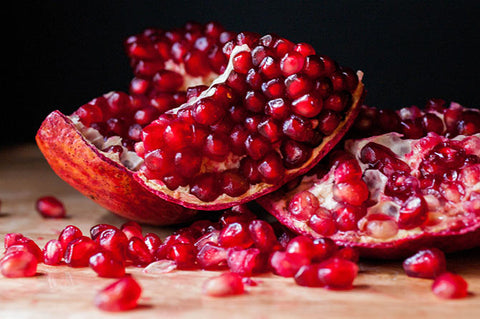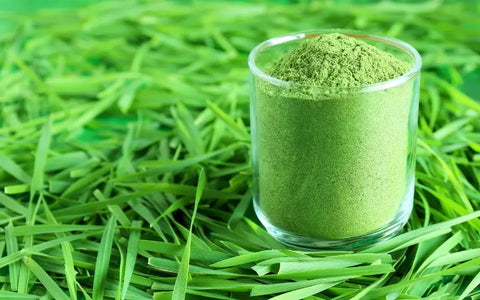Foods That Increase Blood Platelets
Platelets must be maintained at a healthy level in the bloodstream to prevent clots. Although some individuals have thrombocytopenia or a low platelet count, they still need to discover techniques to raise their platelet count.
Trying to find natural methods to boost your platelet count? The next logical step is a raw food diet that raises platelet count without causing any adverse effects.
Blood clots develop to stop the bleeding when we get a cut, and platelets are a vital part of that process.
Blood contains cellular entities, which resemble tiny plates and are found alongside red and white blood cells.
An average platelet count (between 150,000 and 450,000 platelets per microliter of blood) is critical. Thrombocytopenia may occur if you go below this threshold. Over the usual range, you run the risk of developing blood clotting issues.
Foods to Increase Blood Platelets
You may naturally increase your platelet count by consuming foods rich in vitamins and minerals that help the body produce and maintain platelets in the bloodstream.
However, it's preferable to receive these nutrients through food rather than pills whenever possible.
The following are ten foods that have been shown to enhance platelet counts naturally.

- Papaya
Adding papaya fruit to your diet daily can help you maintain a healthy platelet count and keep your blood healthy.
Papaya's adaptability means you don't necessarily need to eat the fruit to get its advantages. The leaves of the Carica papaya tree, which are much more effective than the fruit, may also boost blood platelets naturally.
Suppose you cannot get organic papaya leaves due to where you live. In that case, you may purchase the Papaya Leaf Blood Formula, a natural extract made from organic papaya leaves that contains no GMO ingredients.
- Pumpkin
Another fantastic natural technique to boost your platelet count is by eating pumpkin.
Vitamin A, which is abundant in papaya and other seedy fruits, is essential for proper platelet growth and the control of proteins produced by the body.
- Beetroot
Blood platelets can be significantly increased by eating beetroot regularly.
Beetroot is recommended for people with special blood needs and youngsters who require a natural supplement.
- Wheatgrass
Research claims that wheatgrass is a proven treatment for a low platelet count. Wheatgrass has several health advantages.
Wheatgrass has a high concentration of chlorophyll, which contributes to its effectiveness. As a result, it can only be a positive sign.

- Pomegranate
Another fantastic meal for naturally increasing platelets in the blood. Iron is abundant in pomegranate seeds, as it is in other red fruits, and it is necessary for a healthy platelet count.
The antioxidants, vitamin C, and other minerals in this fruit make it no surprise that traditional medicine practitioners used it for its therapeutic and healthful benefits.
- Lean Protein
Zinc and vitamin B12, found in lean protein, are excellent for boosting low platelet count. Among the many options for lean protein, there's lean beef and white meats like fish, poultry, turkey, crab, and oysters.
Cod liver oil is the lone exception since Omega 3 inhibits platelet activation in circulation.
- Foods Rich in Folate
Known as vitamin B9, folate is a critical component of cell growth and development. To sum it up, a lack of this nutrient in the body might result in fewer platelets. The recommended daily allowance of folate for an "average adult" is 400 milligrams.
Vitamin B9-rich foods include spinach, oranges, asparagus, beans, raisins, and fortified cereals such as Cheerios and Frosted Flakes.
- Foods Rich in Vitamin A
For the production of protein and healthy platelets, vitamin A is essential.
As a result, consuming meals high in this vitamin regularly may assist in keeping your body working correctly. Sweet potatoes, carrots, papaya, and kale are among the many fruits and vegetables used.
- Foods Rich in Vitamin K
Blood clotting is the primary function of Vitamin K. Due to its involvement in activating proteins that stimulate the production of blood clots, which is why it is so important. Therefore, consume meals high in vitamin K regularly. Seaweeds and leafy greens such as kale, parsley, and lettuce are also included in this category of foods. Soybean, olive, Swiss chard, cauliflower, and eggs are a few more options.
- Milk
Milk is one of the complete meals we have access to, if not the whole food.
Milk has a healthy amount of calcium, one of several elements it contains.
Calcium, vitamin K, and a milk protein known as fibrinogen work together to increase the number of platelets in the blood and improve the blood's capacity to clot. Other dairy products may also be used.
Related: 10 Ways to Naturally Increase Blood Platelets | Herbal Goodness
Boost Your Low Blood Platelets Naturally - Foods to Avoid | Herbal Goodness












